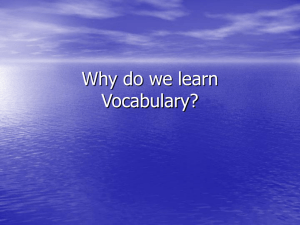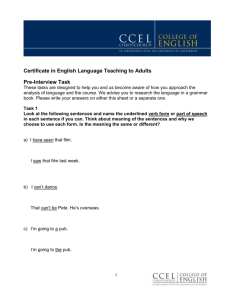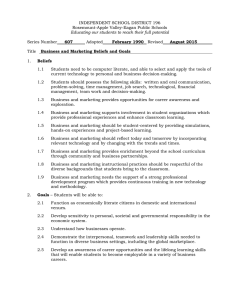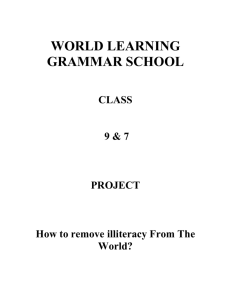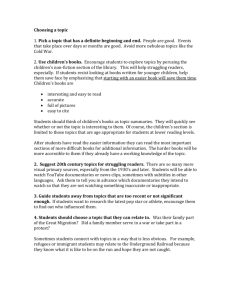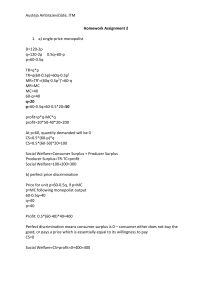Teaching and Developing Vocabulary by: Coach McDowell
advertisement
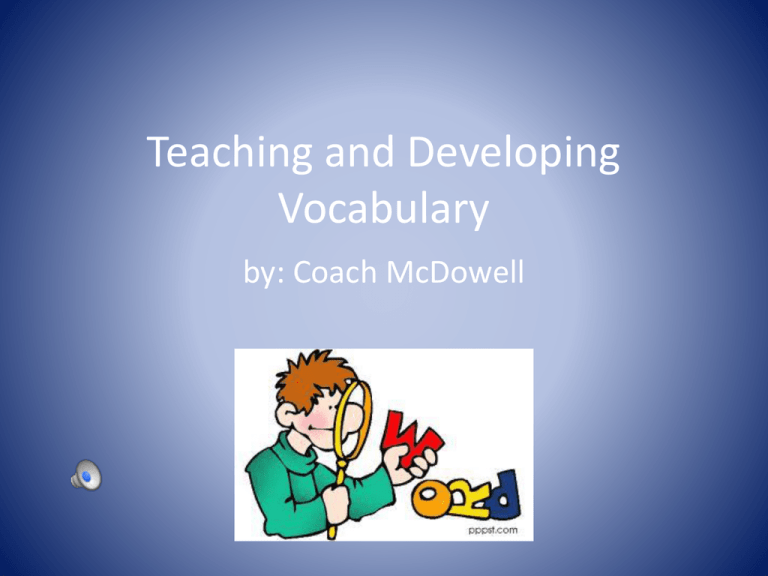
Teaching and Developing Vocabulary by: Coach McDowell Perhaps the greatest tools we can give students for succeeding, not only in their education but more generally in life, is a large, rich vocabulary and the skills for using those words. Our ability to function in today’s complex social and economic worlds is mightily affected by our language skills and word knowledge. (Pikuluski and Templeton, 2004) Four Vocabularies Important Points • First Five Years – Meaning Vocabulary/Literate Vocabulary • Literate Vocabulary Grows • Formal Vocabulary Development • School Curricula • Third Grade Readers • US Student Perfomance Comprehensive Approach Use “instructional” read-aloud events. Provide direct instruction in the meanings of clusters of words and individual words. Systematically teach students the meaning of prefixes, suffixes, and root words. Link spelling instruction to reading and vocabulary instruction. Comprehensive Approach Teach, model, and encourage the application of a word-learning strategy. Teach the effective, efficient, realistic use of dictionaries, thesauruses, and other reference works. Encourage wide reading. Create a keen awareness of and a deep interest in language and Words The Vocabulary-Rich Classroom: Modeling Sophisticated Word Use to Promote Word Consciousness and Vocabulary Growth. A Tale of Two Classrooms Ms. Baker • Kindergarten • “Calendar Activities “ • Goal: General to specific concepts Vocabulary development Ms. Riva’s • Fourth Grade • Morning Meeting • Goal: classroom management building classroom community learning in engaging ways sophisticated synonyms What should our goal be? • Reading, writing, and speaking • “Word Consciousness” • Aware and interest • Sophisticated Language Conclusion “Words, so innocent and powerless as they are, standing in a dictionary; how potent for good and evil they become in the hands of one who knows how to choose and combine them.” — Nathaniel Hawthorne
